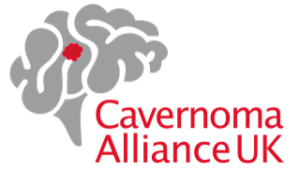Hormone therapy
Recent research suggests a possible link between hormone therapy (including HRT and hormonal contraception) and a higher risk of bleeding from cavernoma, though more studies are needed. Hormone therapy is not currently listed as unsafe for people with cavernoma, and decisions should be made individually with your doctor. Non-hormonal options like the copper coil may be suitable alternatives.
Current evidence
Hormone therapy includes medicines used for contraception (such as the pill or contraceptive patch) and to manage menopause symptoms (hormone replacement therapy or HRT). These often contain forms of the hormones oestrogen and/or progestogen.
One study involving 722 women with brain cavernoma found that those who used hormone therapy containing oestrogen and/or progestogen had around twice the risk of a symptomatic bleed compared to women who did not use these therapies. About 33.6% of hormone therapy users experienced a bleed, compared to 15.6% of non-users.
This was the first large study to suggest a possible link between hormone therapy and cavernoma bleeds. More research is needed before we can say for certain whether hormone therapy increases the risk. Below you can watch a webinar with one of the study’s authors, Dr Susanna Zuurbier.
Practical implications
At present, hormone therapy is not listed as unsafe for people with cavernoma in the official information that comes with these medicines. In the UK and Europe, cavernoma is not considered a reason to avoid HRT or hormonal contraception in the product safety information.
This means hormone therapy may still be appropriate for some people with cavernoma. The decision should be made on a case-by-case basis, balancing the potential risks with the benefits, such as symptom relief or preventing pregnancy. Your doctor can help you decide what’s best for you.
Many clinicians may not be aware of this recent research, so it may be helpful to download and print a copy of the study to bring to your appointment. This can support informed decision-making together.

Common questions
Does the type of hormone therapy matter?
We don’t yet have research comparing the risk of bleeding across different types of hormone therapy in people with cavernoma. This includes different doses, delivery methods (like patches, pills or implants), or whether therapy contains oestrogen alone or in combination with progestogen.
In the general population, some forms of HRT (such as patches or gels applied to the skin) are thought to carry a lower risk of stroke. However, we don’t know yet if this applies to the risk of cavernoma bleeding.
What about non-hormonal contraception?
The copper coil (IUD) is a non-hormonal contraceptive placed in the womb. Because it does not contain hormones, it is not expected to increase the risk of cavernoma bleeding – although this has not been specifically studied.
What about other hormonal contraceptives?
Other methods of contraception, like the Mirena coil (IUS) or the NuvaRing, do release hormones. Although these methods use lower doses of hormones compared to oral contraceptives, no studies have yet looked at whether they carry a lower risk of cavernoma bleeding. If you use or are considering any of these options, it’s best to speak to your GP or neurologist.
What if I’m having IVF?
IVF often involves hormone treatment. The recent study did not include enough people undergoing IVF to say whether there is any increased risk of bleeding in those with cavernoma. As with other treatments, this should be discussed with both your fertility team and the doctor managing your cavernoma.
What if I have a spinal cavernoma?
The study focused on cavernomas in the brain, but spinal cavernomas are thought to behave in similar ways. We can’t say for sure whether the same risk applies, but it may be reasonable to assume so. If you have a spinal cavernoma and are considering hormone therapy, talk to your specialist for advice based on your individual situation.
Should I stop hormone therapy?
No. You should never stop or change your medication without speaking to your doctor. If you are currently taking hormone therapy, speak to your GP or neurologist before making any changes. They can help you weigh up any possible risks and benefits based on your health history and needs.
Is there any lifestyle advice?
Healthy lifestyle choices can also make a difference. Keeping a healthy weight and avoiding smoking are known to reduce your overall risk of stroke, which may be especially important if you’re using hormone therapy.
